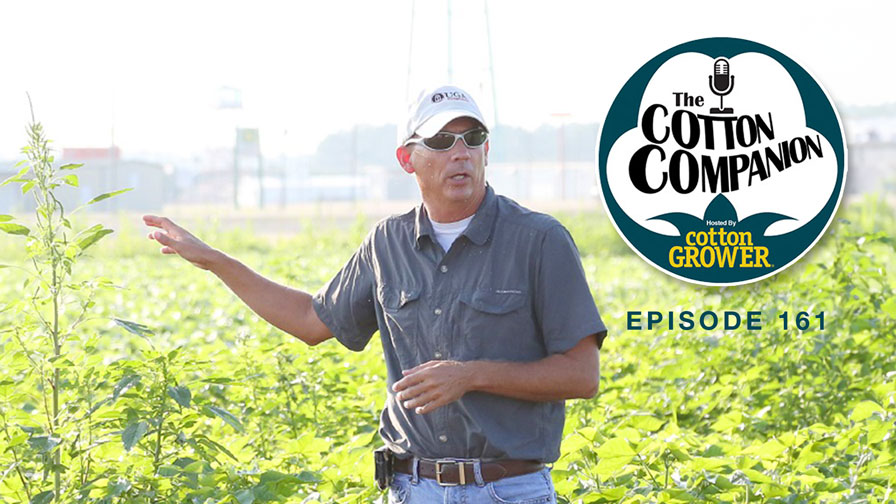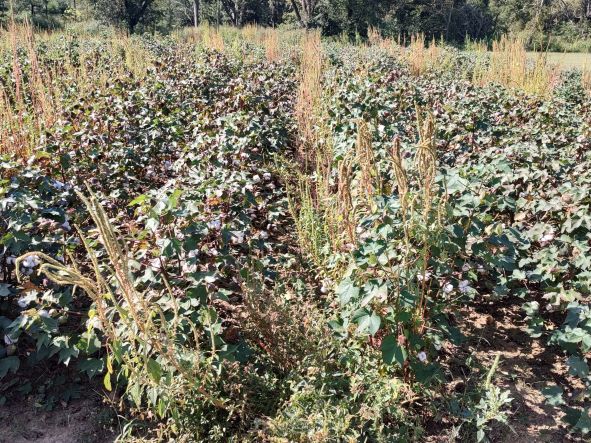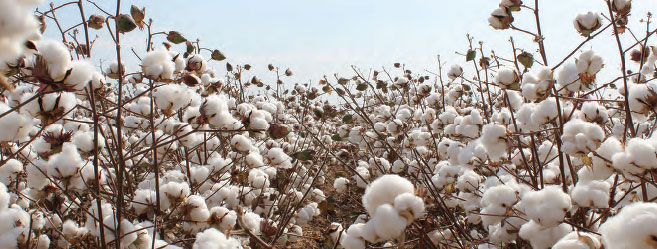Ralph Lauren and Soil Health Institute Unveil New U.S. Regenerative Cotton Program
The Ralph Lauren Corporate Foundation and the Soil Health Institute have announced a $5 million founding grant to launch the Institute’s U.S. Regenerative Cotton Fund (USRCF) – a unique, farmer-facing, science-based initiative to support long-term, sustainable cotton production in the United States, with the goal of eliminating one million metric tons of carbon dioxide equivalent (CO2e) from the atmosphere by 2026.
“At the Ralph Lauren Corporate Foundation, we work to make the dream of a better life a reality by championing equity and creating positive change in communities around the world,” said Roseann Lynch, Ralph Lauren Corporation’s Chief People Officer and Head of the Ralph Lauren Corporate Foundation. “Partnering to scale solutions that build community resilience are powerful ways to positively impact people’s lives, now and for the future. The U.S. Regenerative Cotton Fund is an ambitious effort crafted in partnership with the experts at the Soil Health Institute that puts growers at the center of creating a sustainable future for U.S. cotton production.”
“We are very grateful for the opportunity to promote soil health and to assist cotton farmers across the U.S. with storing more carbon, building drought resilience, and mitigating the very effects of climate change that are impacting us all,” said Dr. Cristine Morgan, Chief Scientific Officer for the Soil Health Institute and leader of the U.S. Regenerative Cotton Fund. “To achieve widespread environmental benefits from regenerative agriculture means we must understand farmers’ needs and experiences when adopting these practices. Adoption is hindered by a lack of information on the business case, locally relevant soil health education programs, and until now, knowledge of how healthy a given soil can become and what that means for improving drought resilience, yield stability, economics, and other benefits for farmers.”
Significant opportunity exists to expand adoption of climate-friendly soil health practices in cotton production. Based on data from the U.S. Department of Agriculture (USDA) Census of Agriculture, only 8% of cotton cropland is managed using cover cropping and 21% is managed using no tillage. The USRCF will empower cotton farmers to adopt regenerative practices like cover cropping and no till in a way that benefits their operation. Regenerative agricultural practices can address issues important to both consumers and the environment such as climate change, water quality, and pollinator habitat. The program will also help to ensure farmers can generate long-term value for their operations including increased profitability.
“After a heavy, 1-to-3-inch rainfall, that’s where cover crops really shine,” said Burton Heatwole, who grows cotton, corn, and other crops on his family’s 1500-acre farm near Millen, GA. “We have no runoff, no wash-outs, and the water in our ditches and ponds is clean. One thing I wish all farmers knew is how a cover crop can help them take advantage of all the sunshine, rain, and growing that can take place from September through November to improve soil health.”
The USRCF is supported by a $5 million grant from the Ralph Lauren Corporate Foundation. Currently, cotton makes up more than 80% of Ralph Lauren Corporation’s total material use. As part of its Global Citizenship & Sustainability goals, the company has committed that 100% percent of key materials, including cotton, will be sustainably sourced by 2025.
The Foundation’s USRCF initiative complements Ralph Lauren’s work to pioneer, foster and scale sustainable innovation through partnerships and investments including its work with Natural Fiber Welding, Inc., and Color on Demand. Additionally, the USRCF will work to unite the interests of farmers, partners, and financial supporters around soil health as the foundation for regenerative agriculture.
Participating USRCF partners include Cotton Incorporated, National Cotton Council, and Field to Market.
“Our support of the U.S. Regenerative Cotton Fund, led by the Soil Health Institute, continues Cotton Incorporated’s holistic approach and producer focus for achieving the environmental and economic benefits generated by improving soil health,” said Dr. Kater Hake, Vice President of Agricultural and Environmental Research at Cotton Incorporated.
“SHI’s North American effort to identify a minimum, cost-effective set of soil health indicators enables us all to work together to improve soil health,” noted Allison Thomson, Vice President, Science & Research at Field to Market. “We are thrilled to work with them on a shared approach to strengthen science-based soil health and soil carbon measurement.”
“We like to see this level of engagement from a U.S. nonprofit like SHI that is focused on delivering benefits to cotton growers,” added Dr. Gary Adams, President and CEO of the National Cotton Council and President of the U.S. Cotton Trust Protocol. “We look forward to working synergistically with the SHI Team to improve soil health at scale and make U.S. cotton the most regenerative fiber in the world.”
The USRCF will initially operate in Arkansas, Texas, Mississippi, and Georgia with plans to expand into Alabama, North Carolina, Missouri, California, and Oklahoma, as these nine states represent 85% of U.S. cotton production. The Soil Health Institute will work closely with cotton farmers to help them measure and monitor the environmental, societal, and economic benefits of soil health management systems on their operations.
Through the USRCF, improvements in soil health and carbon sequestration will be measured through an approach developed by the Soil Health Institute called soil health and soil carbon targets. The USRCF will also engage with Historically Black Colleges and Universities (HBCUs), specifically those with agricultural programs, to develop increased access to career paths in decision-making positions in U.S. agriculture and establish mentoring programs to help prepare the next generation of scientists and leaders in agriculture.
More information about the U.S. Regenerative Cotton Fund can be found online or by contacting Byron Rath at brath@soilhealthinstitute.org.
Based on information provided by the Soil Health Institute and the Ralph Lauren Corporate Foundation








